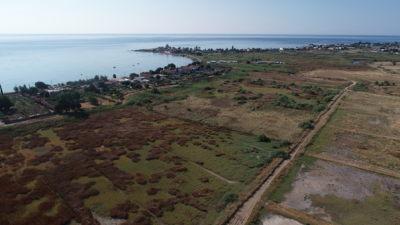
A new scientific paper in Archaeological and Anthropological Sciences presents the preliminary results of the Archaeological Project at Abdera and Xanthi (APAX), a systematic regional survey applying intensive pedestrian sample collection conducted in Greek Thrace.
This new archaeological programme has investigated different landscape settings in the Xanthi area. Different collection strategies were developed to adapt to the conditions of visibility presented by the areas under study.
The new paper, entitled “The archaeological survey at Abdera and Xanthi 2015–2019: long-term analysis of colonial relations in Thrace”, introduces the preliminary results of this research, which have provided quantitative and qualitative spatial data on the distribution of ancient activities, particularly for the Archaic and Classical. Moreover, these results allowed a useful assessment of two cultural groups that were active in the same region during most of the 1st millennium BC, namely Greek colonists and indigenous Thracians.
Authors of this paper are MSCA researcher Mercourios Georgiadis (GIAP, ICAC), Constantina Kallintzi (Archaeological Museum of Abdera), Arnau Garcia-Molsosa (GIAP, ICAC), Hèctor A. Orengo (GIAP, ICAC), Eurydice Kefalidou (National and Kapodistrian University of Athens) and Paraskevi Motsiou (National and Kapodistrian University of Athens).
Get full access here:
Georgiadis, M., Kallintzi, C., Garcia-Molsosa, A. et al. “The archaeological survey at Abdera and Xanthi 2015–2019: long-term analysis of colonial relations in Thrace”. Archaeol Anthropol Sci 14, 167 (2022). https://doi.org/10.1007/s12520-022-01635-x






